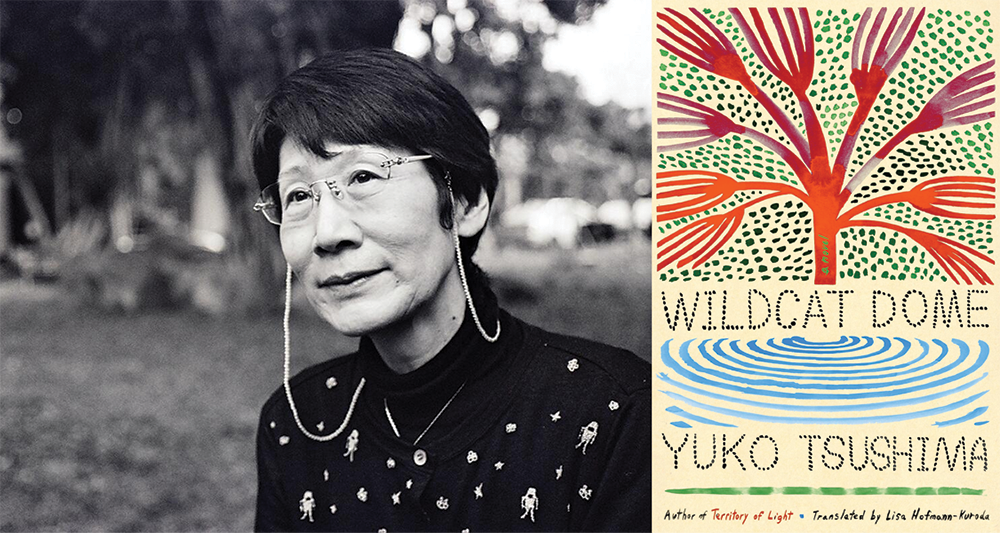Wildcat Dome by Yuko Tsushima, translated from the Japanese by Lisa Hofmann-Kuroda, Farrar, Straus and Giroux, 2025
Yuko Tsushima, perhaps one of Japan’s most quietly radical literary voices, is best known to English readers for Territory of Light and Woman Running in the Mountains—her early, semi-autofictional novels made up of domestic scenes of motherhood and explorations of non-reproductive female sexuality. In her later works, however, she turned away from the spare style that characterized her early work and towards larger-scale examinations of post-war Japan. Her newest book in translation, Wildcat Dome, in a graceful translation by Lisa Hofmann-Kuroda, introduces English-language readers to these powerful historical reckonings.
Originally published in 2013, in the wake of the tsunami that triggered the Fukushima nuclear disaster, Wildcat Dome is both a sweeping epic and a thoughtful meditation on memory, grief, and the unfinished business of history. Told through shifting narrative voices, the novel starts with a buzzing energy: a swarm of scarab beetles consuming leaves in an eerie forest, their appetite so immense that “time flows on and on, a river of emerald.” It’s a place where “insect time” collides with human time, and the buzzing doesn’t stop.
At the novel’s center are Mitch and Kazu—two children born to Japanese mothers and American GIs, then abandoned at an orphanage—and their friend Yonko, the niece of the woman who runs the orphanage. Throughout their lives, the three children, now adults, carry with them the weight of vague memories and a diffuse “prophecy.” This cryptic warning seems linked to a traumatic event that continues to haunt them into adulthood: the mysterious drowning of a fourth child, Miki-chan, a fellow orphan. As witnesses to the event, their young ages and fallible memories keep the circumstances of her death shrouded in mystery. Was it an accident, a crime, or something else? What about the strange boy, Tabo, who, unlike Mitch, Kazu, and Miki-chan, is “fully” Japanese and has a mother who will do anything to protect him—including covering his potential crimes? As the novel investigates the contradiction between the relentless passing of time and the stand-still of a history that has not been properly addressed, the prophecy shifts and mutates. Its warning comes to function as a narrative refrain rather than a concrete plot device, keeping the three main characters forever anchored to their pasts, unsettling any attempt at closure. READ MORE…

